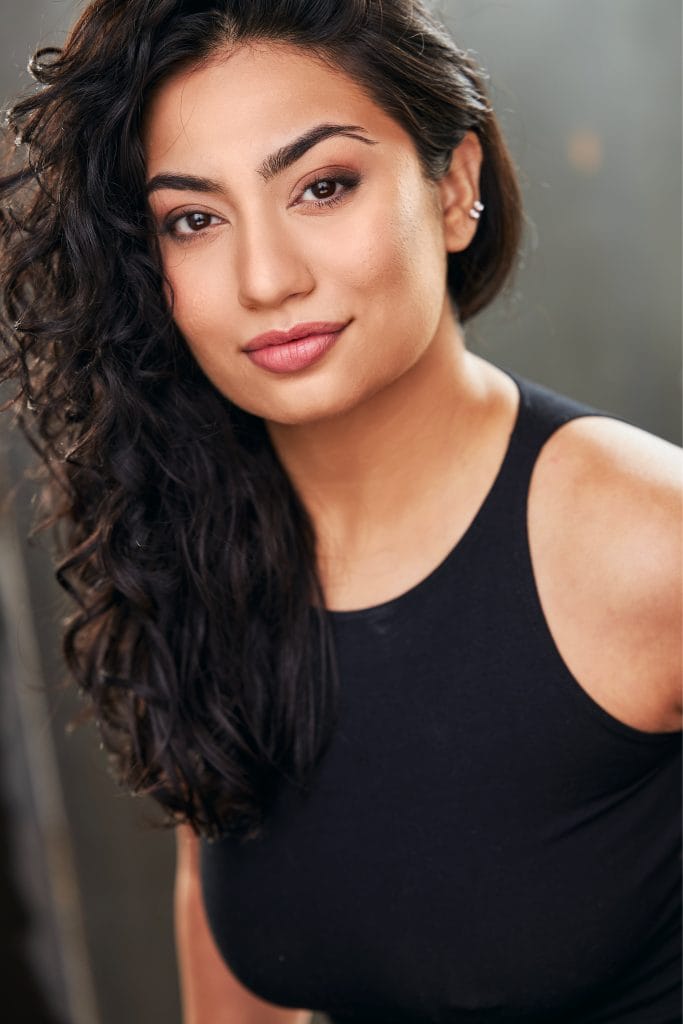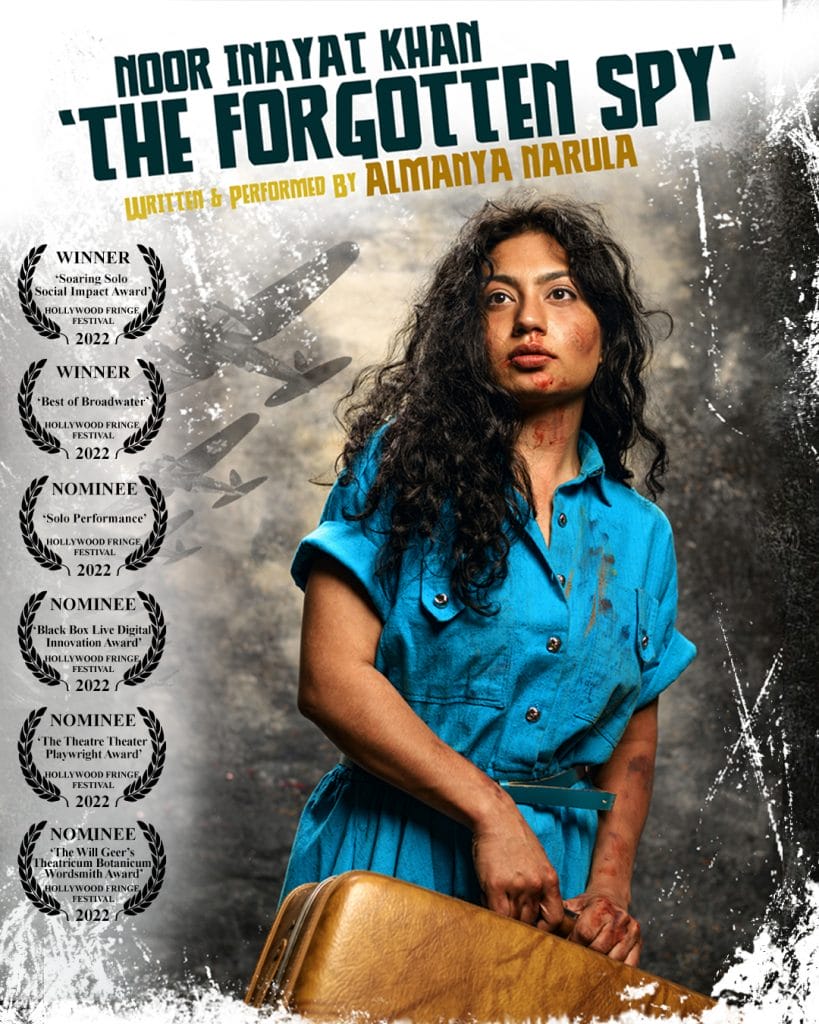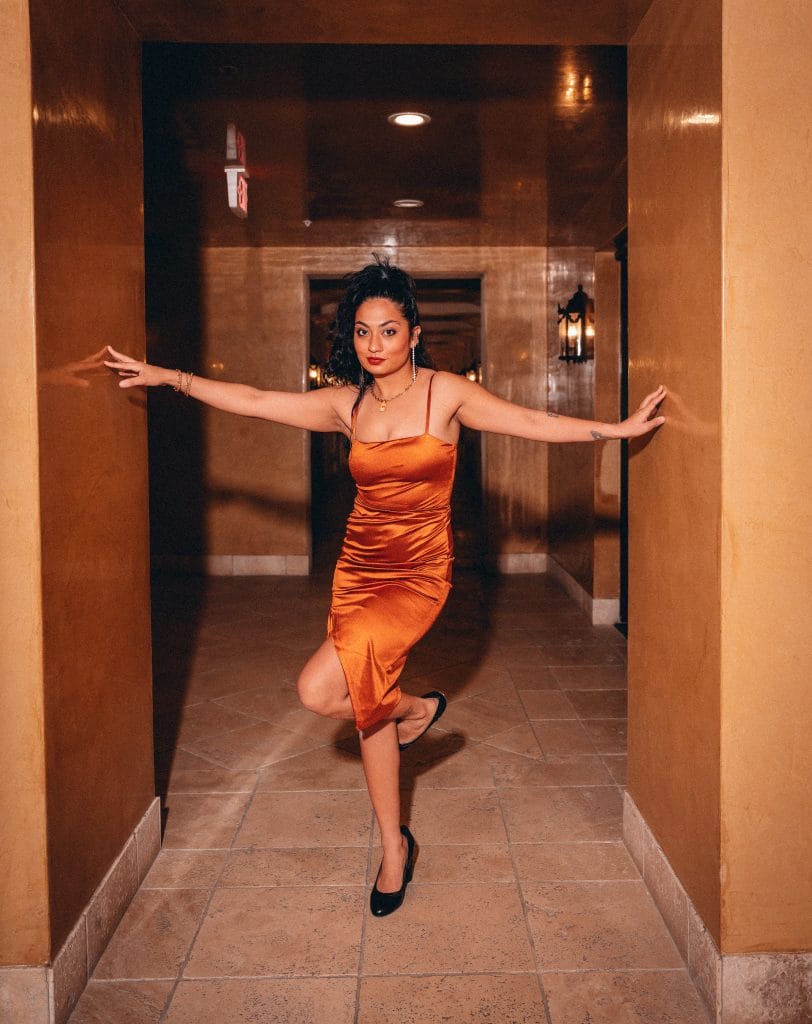Roll out the red carpet
By Shaan Bajaj
Growing up, my dadaji told me stories every night, mostly from Sikh history. My favourite retellings were usually of powerful women who were not afraid to fight against injustice, and my appreciation for female-centric South Asian stories has only grown since. One individual who shares the same sentiment is Almanya Narula, an actor, writer, and fight choreographer, who recently won two awards at The Hollywood Fringe Festival for a 30-minute solo show based on the true story of Noor Inayat Khan, a British Spy in World War II. A Thai-Indian who studied at Ruamrudee International School, Almanya moved to the United States to pursue an education and career within the American theatre and film industry. There, she graduated with a Bachelor of Arts from Columbia College Chicago with a double major in Advanced Management and Theatre and a double minor in Stage Combat and Voice Over, and a Master’s in Arts Journalism from the School of the Art Institute of Chicago.
“I’ve been acting for as long as I can remember,” Almanya says, when we sat down to talk about her journey so far. “My first memory is of me running across a beach in Mumbai for a Cadbury Éclair commercial as someone shouted, “Cut!” By the age of seven, I had acted in a TV show, music videos and commercials. At the time, I did not realise acting was a profession. To me, it was like playing pretend on a playground. Before receiving any major roles, my mum decided I should focus on my education and moved us to Thailand, which I’m thankful for.”
Although it’s easy to lose interest as a kid, Almanya’s passion for acting only grew during her time in Thailand through school activities, plays, IB theatre, pop culture, and action films like the Star Wars and Pirates of the Caribbean franchises. However, her motivation to pursue a career came from her passion to put desi women and Indian excellence at the forefront. “I am a tenacious person in general,” she tells me. “I won’t stop until I achieve what I want. I don’t want to be limited by my gender, skin colour or accent. American culture is filled with people from all around the world, so the notion that the leading hero in a movie has to be a straight, cis, white male is outdated. It became my mission to transcend stereotypes. I never saw people of colour, Indians, or women take on these high-intensity action roles, and I wanted to change that – it became a driving force for me. I’m a desi woman and Thai-Indian, and there is a place for me and my story.”
This drive to create a space for the stories of South Asian women began at a young age, when a bored 10-year-old Almanya, while waiting for her mum in a Kinokuniya bookstore, picked up a book on World War II. She’d noticed a footnote of an Indian British spy woman called Noor Inayat Khan: “I have the image of the footnote in my head, and I remember taking a second glance because it was the name of an Indian woman. I didn’t remember her name at the time, but something about it stuck. Ten years later, I came across her again on a Wikipedia search and I’ve now written a solo show about her story.” Noor Inayat Khan: The Forgotten Spy opened to rave reviews at the Hollywood Fringe Festival, winning the ‘Soaring Solo Social Impact Award’ and ‘Best of Broadwater’ award.
As a third culture kid, Almanya felt represented and seen by Noor’s story. “Noor was a direct descendent of Tipu Sultan; she was royalty,” she explains. “While her father was Indian, her mother was American. She was a spy for the British in World War II, and she was the first woman to be sent into Nazi France, where she survived for months, although the life expectancy of a radio operator was six weeks. She was one of the reasons D-Day was a success, and we’ve never even heard of her. “Noor joined the war to get away from her overbearing Indian family, who was trying to dictate her every move. She had this ‘hero’s journey’ moment in Paris, where she realises she is the only one in her network left. Everyone had been caught or had gone back because of the danger.
“To me Noor’s story was about a woman seeking an adventure and stumbling upon greatness. I connected with her story deeply because I not only saw myself in her but also my mum. Like Noor, my mum is an extremely feminine woman but is such a driven person, and her mission was getting me an education. I think Indian mums are some of the strongest people. When we think of rebellious historical figures, we think of men. We forget there is strength in femininity. Desi femmes have endured so much throughout history.”
Almanya speaks to Masala further on the hope she found in Noor’s story, and the importance of her Thai-Indian heritage and culture.
Being an actor, writer and fight choreographer are very disparate jobs, requiring distinct skills. How do your separate experiences inform each of the roles?
I think they influence each other so much. Noor Inayat Khan’s performance is a perfect example. I wrote her story to my strengths as an actor, and as a fight choreographer, I was able to incorporate moments of induced violence to enhance the show. I was waiting for a project that would make me shine, but it was not until I connected with someone’s story and wrote a role for myself, and believed in myself.
Fight choreography is a pretty niche area – what led you to it?
I studied stage combat at my college. Fight masters trained me to learn body fluidity, control over my body, and safety. It was rigorous and meticulous. It was not my goal to become a fight choreographer, but it really empowered me.
How has your Thai-Indian background influenced you?
Being Thai-Indian is who I am, it is a unique cultural experience. It influences the way I think, write and navigate myself. I draw experience from my upbringing to try and replicate the feeling I get of being part of the community where everyone knows each other. I want to share that with the world and normalise it, or at
least make people aware of it. People forget Indians are all over the world, so there is no one South Asian story.
What has been the toughest part of your journey, and conversely, the most fulfilling part?
I felt defeated by the pandemic. I lost opportunities one by one. I felt like I was at the height of my career, and then we went into lock down. However, the universe gave me a chance and I received an opportunity to enroll in a conservatory at the Stella Adler Art of Acting in LA, which was a dream. Throughout, I found hope in Noor’s story. If she could go out and fight, I could wake up. I needed to tell her story for me, as much as her story needed to be told. In the current political climate, people need a story to empower them; to remind them that all is not lost.
The most fulfilling part of my journey has been the response to the performance. People have come up to me to tell me how they are going to go home and research her and how her story gives them hope. That’s what I hoped to achieve.
What advice can you give to the youth who may be looking to pursue a similar career path?
I want to say this to the youth, particularly the female youth-: everyone is born with a light inside. People will try to take that light away, make you believe this is how you are supposed to live your life. That because of your gender, colour or background, you are not deserving of being what you want to be. When hearing negative opinions on how you should live your life, remember, you are your own person. You have everything you need inside of you to shine, keep your head up, and believe in yourself.









